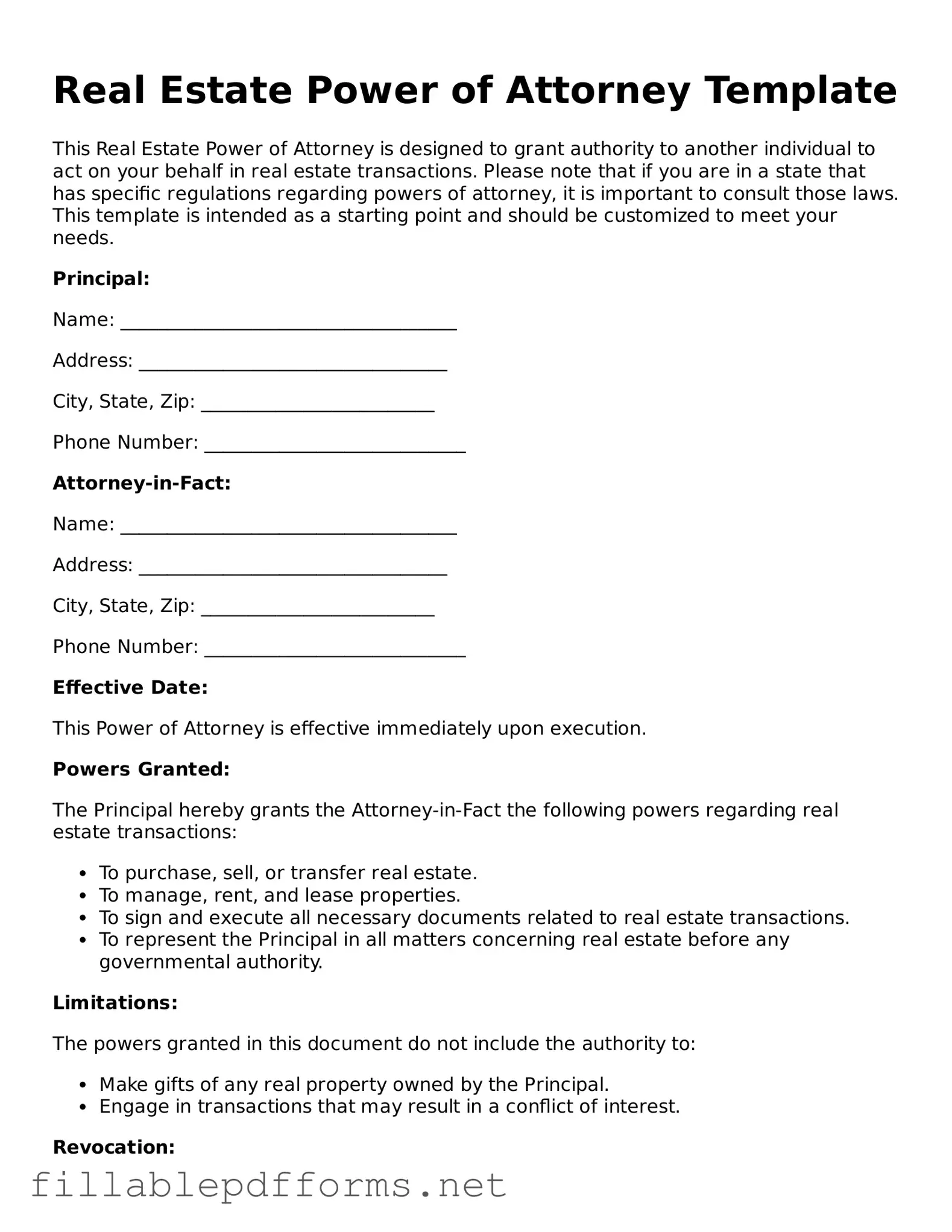Blank Real Estate Power of Attorney Template
A Real Estate Power of Attorney form is a legal document that allows one person to authorize another to manage their real estate transactions on their behalf. This form is particularly useful when the property owner is unable to be present for important dealings, such as buying, selling, or managing property. By granting this authority, individuals can ensure that their real estate matters are handled efficiently and in accordance with their wishes.
Launch Editor Here

Blank Real Estate Power of Attorney Template
Launch Editor Here

Launch Editor Here
or
▼ Real Estate Power of Attorney PDF
Almost there — finish the form
Complete Real Estate Power of Attorney online fast — no printing, no scanning.